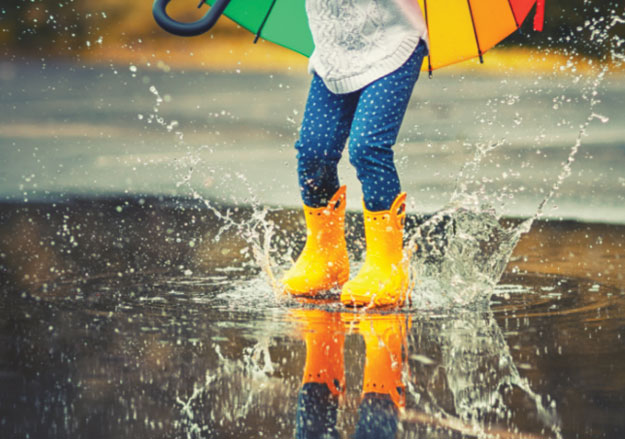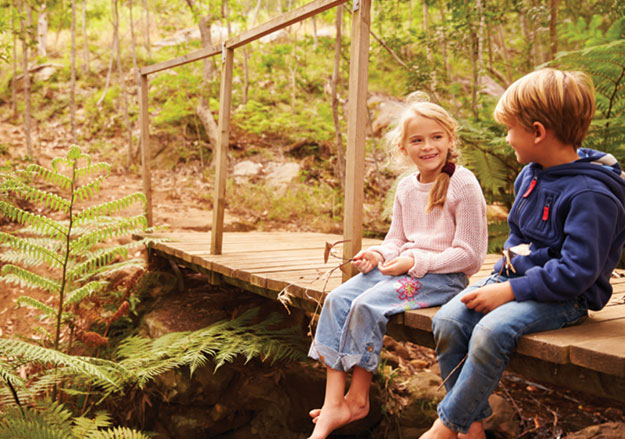Resources
Resiliency
Building Resilience Resource Guide For Providers and Families
Video Resources
Your pediatricians want to support you and your children on the “Road to Resilience!” Listen to our pediatricians give suggestions on how to develop resiliency in your child.
All Ages Handouts for Providers and Families
Reaching IN Reaching Out Guidebook was created to increase awareness in child-serving professionals of the importance of promoting resilience in children through adult modeling of resilient thinking and behavior.
Neurodevelopmental Informed Parenting Resource List provides resources for parents related to co-regulation, positive discipline, and the science behind spanking and punishment.
Child Welfare Resource Guide was developed by the U.S. Department of Health and Human Services’ Children’s Bureau to support service providers in their work with parents, caregivers, and their children to prevent child abuse and neglect and promote child and family well-being.
Child Welfare Tip Sheet provides tips on specific parenting issues and strategies for parents, programs and community partners to promote child well-being.
Seven Cs of Resiliency in Children describes the building blocks of resiliency.
The Road to Resilience handout illustrates what kids need to travel the many bumps, twists and turns of life. This handout is well-organized and could serve as a discussion piece at Well-Child visits.
Collaborative Problem Solving Plan helps parents eliminate challenging episodes with children by helping their children solve the problems that cause them in a collaborative and proactive way.
Understanding ACEs handout is a great 1-page handout for patients that defines ACEs and resilience in easy-to-understand terms.

Articles for Providers and Families
Promotion of Positive Parenting research study that determines what effects pediatric primary care interventions have on socioemotional development of toddlers from low-income, primarily immigrant households.
Building Resiliency: The Power to Cope with Adversity was published by UCLA and Children’s Hospital Boston. It provides evidence-based tools to help parents build resilience.
Video Resources for Providers and Families
Dr. Dean Moshofsky’s Collection of Resilience videos featuring conversations with families during well-child visits. These videos are a great example of resilience interventions in action!
Please contact the Children’s Health Alliance at info@ch-alliance.org for the password to this video collection.
Brene Brown’s Video on Empathy is a great short video with animation for parents.
Dr. Amy Stoeber co-hosts a parenting talk show called “The Motherload- Not Your Mother’s Parenting Advice.” Episode 10 and Episode 11 is a 2-part series on “Healthy Family Habits” that includes more interventions like the “Red Plate Program” and Alfie Kohn’s “Love Withdrawals.” Several books are mentioned as well.
Books for Providers and Families
Children and Trauma: A Guide for Parents and Professionals by Cynthia Monahon teaches parents and professionals about the effects of trauma on children and offers a blueprint for restoring a child’s sense of safety and balance.
Peaceful Parent, Happy Kids: How to Stop Yelling and Start Connecting by Dr. Laura Markham helps parents better understand their own emotions- and get them in check- so they can parent with healthy limits, empathy, and clear communication to raise a self-disciplined child.
The Body Keeps Score: Brain, Mind, and Body in the Healing of Trauma by Dr. Bessel Can Der Kolk uses recent scientific advances to show how trauma literally reshaped both body and brain, comprising sufferers’ capacities for please, engagement, self-control, and trust. This book explores innovative treatments that offer new paths to recovery by activating the brain’s natural neuroplasticity.
Raising an Emotionally Intelligent Child: The Heart of Parenting by Dr. John Gottman is a groundbreaking guide to teaching children to understand and regulate their emotional world.
Zero to Five: 70 Essential Parenting Tips Based on Science by Tracy Cutchlow cuts to the chase, summarizing the best parenting research in bite-sized chunks.
The Secrets of Happy Families by Bruce Feiler has drawn up a blueprint for modern families- a new approach to family dynamics, inspired by cutting-edge techniques gathered from experts in the disciplines of science, business, sports, and the military.
Building Resilience in Children and Teens: Giving Kids Roots and Wings by Dr. Kenneth Ginsberg guides parents and other caring adults how to help kids from the age of 18 months to 18 years build the seven crucial “C’s”
The Magic Years: Understanding and Handling the Problems of Early Childhood by Selma H Fraiberg takes the reader into the mind of the child, showing how he confronts the world and learns to cope with it.
Whole Brain Child: 12 Revolutionary Strategies to Nurture Your Child’s Developing Mind by Dr. Daniel J. Siegel explains-and makes accessible- the new science of how a child’s brain is wired and how it matures.
The Explosive Child: A New Approach for Understanding and Parenting Easily Frustrated, Chronically Inflexible Children by Dr. Ross Greene helps families understand why and when children behave this way and how to respond in ways that are non-punitive, non-adversarial, humane, and effective. This collaborative problem solving plan handout correlates to this book.
Queen Bees and Wannabes is a book that Dr. Amy Stoeber recommends to help adults look at girls’ friendships and conflicts–from how they choose their best friends, how they express their anger, their boundaries with boys, and their relationships with their parents.

Books for Children
Our Friendship Rules by Peggy Moss and Alissa Imre Geis is both a lyrical story of forgiveness and a guidebook on relationships.
Drums, Girls, and Dangerous Pie by Jordan Sonnenblick is about an eighth grade boy whose 5-year-old brother has leukemia (the follow-up book After Ever After is about the younger brother, now in 8th grade, who loses a friend to cancer).
A Crooked Kind of Perfect by Linda Urban addresses learning how to be ok when your life and family aren’t perfect.
Have you Filled a Bucket Today? A Guide to Daily Happiness for Kids by Carol McCloud and David Messing a great book to talk to preschool and grade school children about feelings, how what they say or do affects others’ feelings, and how helping someone else helps us (it fills our buckets too!). It can make for great dinner time conversations… “Whose bucket did you fill today? How? Did someone fill your bucket today? Did you notice anyone with an empty bucket? — A favorite of Dr. Amy Stoeber!
Here are some great companion resources for bucket filling, including a journal for recording thoughts, feelings, and experiences about each day.
Online Resources For Parents
Empowering Parents provides parenting content you can use to help turn around your child’s behavior, right away.
Calm: Meditation to Relax, Focus, and Sleep Better is a phone app that provides guided meditation exercises.
Common Sense Media empowers parents, teachers, and policymakers by providing unbiased information, trusted advice, and innovative tools to help them harness the power of media and technology as a positive force in all kids’ lives.
Vroom is a Seattle-based company that provides families with things that they can do with their children each day to stimulate development, interaction, and resiliency.
Thinkkids.org provides training and instruction for using collaborative problem solving with challenging kids.
Games For Families
Coping Skills Bingo fosters conversation and discussion about coping with stress.
How Do You Feel is a game that helps young learners build visual discrimination skills by completing facial expression puzzles.

Resources for Early Childhood
Circle of Support Resource explanation and guide
The Magic Years: Understanding and Handling the Problems of Early Childhood by Selma H Fraiberg takes the reader into the mind of the child, showing how he confronts the world and learns to cope with it.
Resources for Early Adolescence
Collaborative Problem Solving Plan helps parents eliminate challenging episodes with children by helping their children solve the problems that cause them in a collaborative and proactive way.
Resources for Late Adolescence
Flipping your Lid: A Scientific Explanation, video by Dan Siegel that explores the basis of tantrums.
Whole Brain Child Workbook by Dan Siegel and Tina Payne Bryson includes activities that parents can do on their own or with their kids to move towards a deeper connection.
Resources for Teenage Years
Staying Connected to Your Teenager: How to Keep Them Talking to You and How to Hear What They’re Really Saying by Michael Riera helps frustrated parents reconnect with their teenager and keep that connection even in today’s often-crazy world.
Dad, Here’s What I Really Need from You: A Guide for Connecting with Your Daughter’s Heart by Dr. Michelle Watson of The Abba Project provides ideas, encouragement, timely information, dialogue helps, and biblical references for dads.
Brainstorm: The Power and Purpose of the Teenage Brain by Dr. Dan Siegel explores ways in which understanding how the brain functions can improve the lives of adolescents, making their relationships more fulfilling and less lonely and distressing on both sides of the generational divide.
© 2017 Children’s Health Foundation All Rights Reserved

